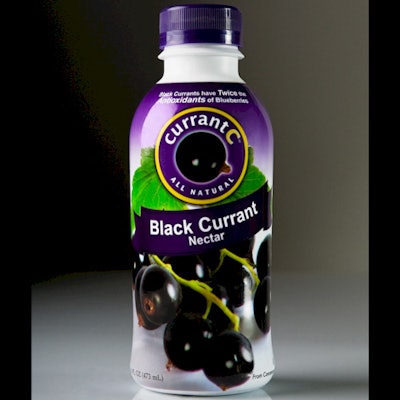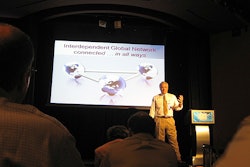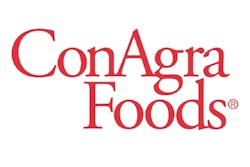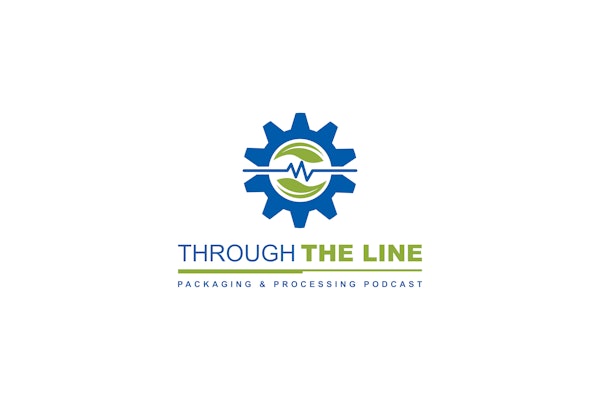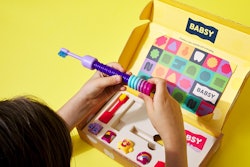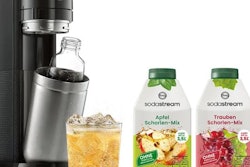Multiplication and repackaging add up to a market expansion for The Currant Co., whose vice president and general manager Ryan Quinn believes plastic is the future for the company's expanded line of six bottled currant nectars. The revamped and extended lineup of its CurrantC nectars coincides with a repackaging into 16-oz high-density polyethylene bottles and expansion of the products into national distribution. The product in one variety had been sold on a limited basis in a 16-oz glass bottle since 2005.
"We made the packaging change for a number of reasons, first and foremost, it's a whole lot less expensive to ship the products across country in plastic versus glass," offers Quinn, the son of company founder Greg Quinn.
According to the Staatsburg, NY, company, other reasons for the change include the fact that HDPE bottles are easy to recycle, and HDPE is one of the resin types most in demand by recyclers.
The glass format offered a glue-applied paper label, while the new HDPE format features slickly printed shrink sleeves. The Currant Co. declines to cite its packaging vendors.
The repackaged product began shipping nationally in early 2009, starting on both coasts and moving inward, and as of May, it appears in about 30 states. "It's sold in groceries and supermarkets in the produce department in refrigerated cases at most major chains," Quinn says.
The HDPE-bottled product sells for $3.99 each.
The company was the first in America to domestically produce a nationally available black currant product of any kind when it introduced CurrantC, an all-natural, premium black currant nectar in 16-oz glass bottles in 2005.
Popular in Europe, currants had been banned for nearly a century in the U.S. until several years ago. The overturn of the ban, which had been based on a pine-tree disease thought to be associated with the presence of currant shrubs, is credited to the older Quinn.
"The response from consumers and from the retail trade to our CurrantC black currant nectars has been overwhelmingly positive,” reports Greg Quinn. “We are looking forward to a very bright future for the black currant and our nectars as we introduce this healthy, premium beverage nationally.”
